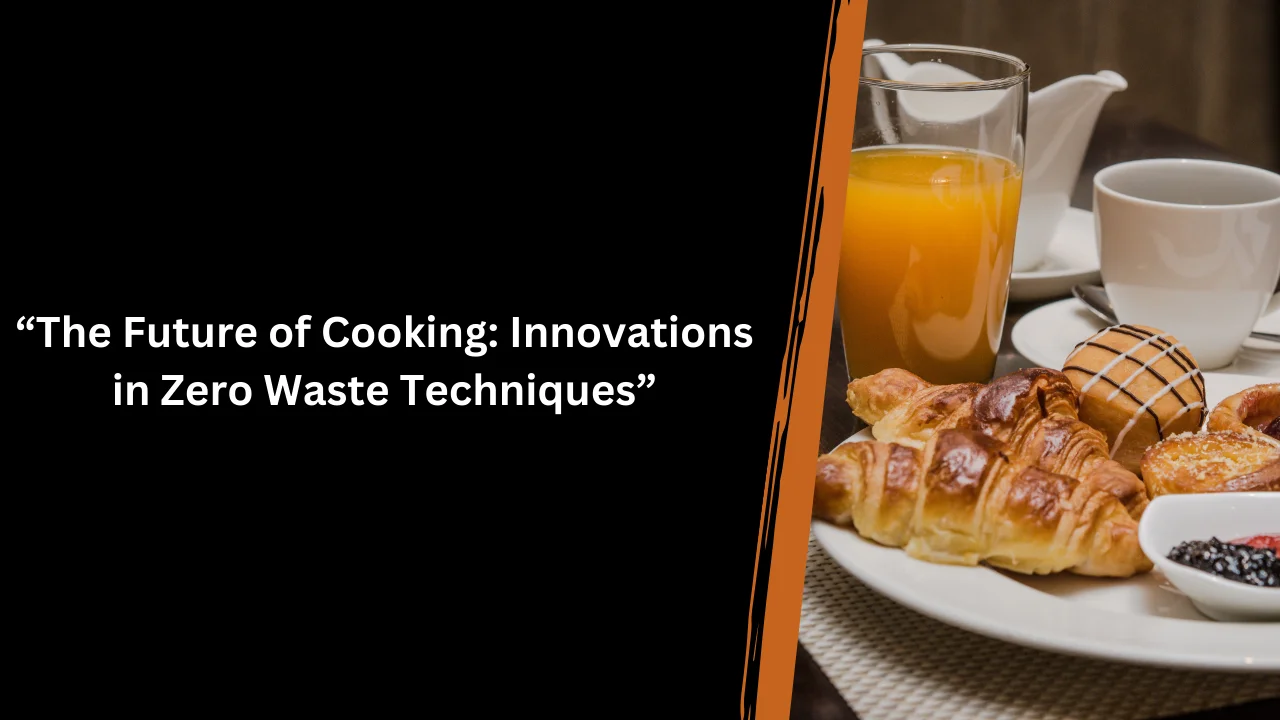As the global focus on sustainability intensifies, the culinary world is rapidly evolving to address food waste through innovative zero waste techniques. These advancements not only help reduce environmental impact but also push the boundaries of creativity and efficiency in the kitchen. Here’s a look at some of the most exciting innovations shaping the future of zero waste cooking.
1. Smart Kitchen Appliances
Advances in technology are playing a pivotal role in reducing food waste:
- Food Waste Trackers: Modern kitchen appliances equipped with sensors and apps can track food usage and expiration dates. These smart devices help users monitor their consumption patterns and provide reminders to use ingredients before they spoil.
- Automatic Composters: Compact, user-friendly composters that accelerate decomposition processes make it easier to compost kitchen scraps at home. These appliances can handle a range of organic waste and turn it into nutrient-rich compost in a matter of hours.
2. Upcycling Food Waste
The concept of upcycling involves transforming food waste into valuable products:
- Food Waste Ingredients: Innovative companies are developing ingredients from food waste, such as flour made from spent grains (a byproduct of brewing) or pasta made from vegetable peels. These ingredients offer new culinary possibilities and reduce waste.
- Edible Packaging: Scientists are creating edible packaging materials from food waste, such as seaweed-based wraps or fruit peel coatings. These sustainable alternatives reduce the reliance on single-use plastics and can be consumed or composted.
3. Advanced Preservation Techniques
Innovative preservation methods extend the shelf life of produce and reduce waste:
- Freeze-Drying: Freeze-drying technology, once reserved for astronaut food, is now becoming more accessible. This method removes moisture from food, allowing it to be stored for extended periods without refrigeration.
- Vacuum Sealing: Enhanced vacuum sealing techniques help preserve food by removing air and sealing it in airtight bags. This technology prevents spoilage and freezer burn, extending the usability of leftovers and bulk purchases.
4. Artificial Intelligence and Machine Learning
AI and machine learning are transforming how we approach food waste:
- Predictive Analytics: AI algorithms analyze purchasing and consumption patterns to predict food waste and suggest personalized meal plans. These systems can optimize grocery shopping lists and provide recipe suggestions based on what’s in the pantry.
- Waste Reduction Apps: Machine learning-powered apps help users identify ways to use leftover ingredients or provide recipes based on what’s available in the kitchen. These tools make it easier to minimize food waste through practical, data-driven suggestions.
5. Innovative Cooking Techniques
New cooking methods and tools are reducing waste and enhancing efficiency:
- Sous-Vide Cooking: Sous-vide cooking, which involves vacuum-sealing food and cooking it in a water bath at precise temperatures, reduces waste by maximizing flavor and minimizing overcooking. It also allows for precise portion control.
- Fermentation and Culturing: Fermentation techniques are gaining popularity for preserving food and enhancing flavors. Techniques like fermenting vegetable scraps or using leftover bread to make sourdough starter reduce waste while adding unique flavors to dishes.
6. Circular Economy Practices
Circular economy principles are being integrated into food production and consumption:
- Farm-to-Table Innovations: Restaurants and food businesses are adopting farm-to-table practices that reduce waste by using every part of the produce. This includes creating dishes from food scraps and implementing composting programs.
- Zero Waste Restaurants: Some restaurants are leading the way with zero waste philosophies, where every ingredient is utilized, and waste is minimized. These establishments often collaborate with local farms and food producers to close the loop on waste.
7. Sustainable Packaging Solutions
Innovative packaging solutions are essential for reducing food waste:
- Biodegradable Packaging: Advances in biodegradable packaging materials, such as plant-based films and compostable containers, offer alternatives to single-use plastics. These materials break down naturally, reducing landfill waste.
- Reusable Packaging: Companies are developing reusable packaging systems, such as refillable containers and zero-waste delivery services. These systems reduce the need for disposable packaging and encourage sustainable practices.
8. Community and Educational Initiatives
Education and community involvement are crucial for spreading zero waste practices:
- Workshops and Classes: Educational programs and workshops on zero waste cooking and sustainable practices are becoming more common. These initiatives help individuals and communities learn how to reduce waste and adopt sustainable habits.
- Food Recovery Networks: Community-driven food recovery networks are working to redistribute surplus food to those in need, reducing food waste while addressing hunger. These networks connect businesses, food donors, and volunteers to minimize waste and support local communities.
9. Innovative Food Technologies
Emerging food technologies are pushing the boundaries of sustainability:
- Lab-Grown Foods: Advances in lab-grown meat and dairy products offer sustainable alternatives to traditional animal agriculture. These technologies reduce resource consumption and waste while providing nutritious options.
- Vertical Farming: Vertical farming uses stacked layers to grow crops in urban environments. This method reduces the need for transportation, conserves water, and minimizes food waste by producing fresh, local produce.
10. Collaborative Consumption Models
Sharing economy models are promoting zero waste practices:
- Food Sharing Apps: Apps that facilitate food sharing between individuals, businesses, and communities help reduce surplus and minimize waste. These platforms allow users to donate, exchange, or sell excess food.
- Community Gardens: Community gardens and urban farming initiatives encourage local food production and reduce waste by allowing individuals to grow their own produce and share surplus with neighbors.
Conclusion
The future of cooking is increasingly aligned with zero waste principles, driven by innovative techniques and technologies. From smart kitchen appliances and upcycled ingredients to advanced preservation methods and sustainable packaging solutions, these advancements are reshaping how we approach food waste. By embracing these innovations, we can create a more sustainable food system, reduce environmental impact, and make every meal a step toward a greener future.
